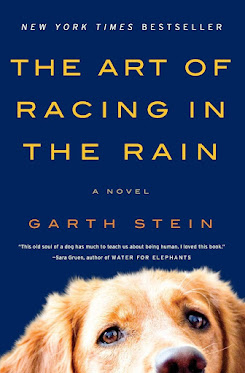*spoiler review*
My first John Steinbeck, another selective pick from Goodreads' recommendation.
This book is an easy read, it flows, there are not too many but enough characters. We can imagine the people, the setting, and even the smells emitting from the rundown place and denim, a lot of denim.
The story is simple enough, in a regular, continuous timeline about George and Lennie. I can't help but get some Rain Man vibe at the beginning of the book. There are some funny moments as well, but overall, there are so many sad issues, and good god, there are so many dog killings! NOO!
Sadly, the life struggles portrayed in this book are not limited to the time of the Great Depression. We are getting better somehow, but not everytime, not everywhere, and most problems still persist in the same or different permutations.
Lennie is a mentally disabled companion of George, a quick-witted and small-built man, who tries to keep both of them alive after escaping a place where Lennie was accused of doing something indecent. They are holding on to the dream that they will have their own land with pigs, chickens, rabbits and an alfalfa farm. They recall the dream every day, it is Lennie's favorite time to make George tell him again. Unfortunately, despite being harmless, innocent and endearing, Lennie keeps getting into trouble because he has problems processing his interaction with others and controlling his own strength and reaction.
It is very sad to read about him recoiling, afraid and trying to convince himself and others that he doesn't mean to hurt anyone while clinging to the carcasses of dead mouse, puppy and eventually human, those he wants to love and is curious about, harming them despite never having any intention to do so. It doesn't help that he exists in the world without much understanding about his condition, and he gets all the blame.
George understands him well and struggles so hard always to be there regardless of how Lennie ruins his own life and enjoyment, he has mistreated Lennie in the past as well before coming to an understanding. There is a sad realization about the need for companionship. Even though George despises Lennie in a way for always getting him in trouble, he is the only reliable companion he has. The book tells us about loneliness and the need to have something or someone to hold on, a place they can call their own where they can safely stay, and the exhaustion of uncertainty. This is also reflected in another character like Crooks, who is treated as nothing by most, not a human being who has needs and wants, just because he is black.
And Candy, it is rough to read how the old man is trying to be brave when his only companion is taken away from him, relating fully to his own condition. And Candy is every single one of us. How will our families and society view us when we outlive our usefulness? Something stinky and useless like an old dog?
George does what Candy regrets not doing. It is a very heartbreaking and sad ending.
Rating: 4 healthy sturdy rabbits out of 5 alfalfa farms
I'll be happy to check the author's other works. Hopefully, there will be no more puppies harmed.
.




















